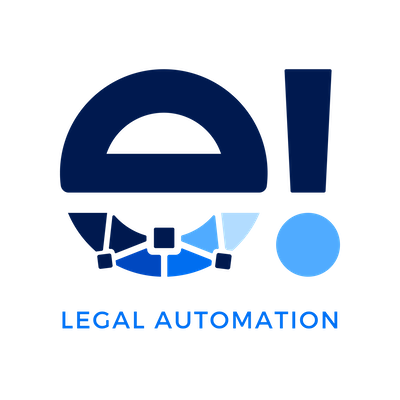1. The Current LegalTech Landscape
The LegalTech landscape has been evolving for the past 50 years, moving from simple automation of legal tasks to more complex applications that can perform tasks previously done by lawyers. This includes legal research, document analysis, and drafting.
The first 40 or 50 years of legal technology were devoted to automating the work that lawyers do. This included word processing, electronic mail, research on the World Wide Web, and accounting systems. However, the landscape has shifted significantly in recent years. Now, we are seeing the emergence of systems that can take on some of the work of lawyers. This includes legal research, document analysis, and document drafting. These systems are moving from the back office to the front office, taking on tasks that were once the exclusive preserve of lawyers.
As artificial intelligence (AI) and machine learning become more advanced, they are increasingly being used in legal fields. One of the fastest-growing areas of legal tech is contract review, where AI systems can analyze and parse through thousands of documents to identify key data points and flag potential issues. This not only saves time but also reduces the risk of human error.

AI is also being used in legal research, where machines can quickly sift through large volumes of legal materials to identify trends, cases, and other relevant information. Legal chatbots are another example of AI being used to free up lawyers’ time by handling simple inquiries and legal paperwork.
Overall, AI is helping lawyers become more efficient, more accurate, and more effective in their work. This shift from the back office to the front office is transforming the legal industry, creating new opportunities for tech-savvy lawyers and changing the way legal services are delivered.
2. The Importance of LegalTech
Legal tech is crucial for the industry as it provides a more efficient, cost-effective, and convenient way of delivering legal services. It is particularly beneficial for individuals and small businesses who may not otherwise be able to afford traditional legal services.
Legal tech is not just about automating tasks; it’s about providing a better service to clients. It’s about delivering legal services in a way that is more convenient and accessible. It’s about reducing costs and making legal services more affordable. And it’s about improving the quality of legal services, by enabling lawyers to focus on the tasks that really matter, while automating the more routine tasks. This shift is largely driven by advances in artificial intelligence and natural language processing technologies, which allow these systems to analyze large volumes of legal documents and case law, identify patterns and insights, and even provide legal advice to clients.
As a result, legal professionals are able to streamline their workflow and focus on higher-level tasks, while these systems handle routine legal work more efficiently and accurately. However, there are concerns about the ethical implications and risks of relying too heavily on these systems, particularly when it comes to sensitive legal matters that require human judgment and expertise.
As artificial intelligence and machine learning technologies continue to advance, they are increasingly being integrated into various aspects of the legal industry. These systems are now capable of performing tasks that were previously only possible for human lawyers, such as document review and contract drafting.

However, in recent years, these systems are also moving from the back office to the front office, meaning they are taking on tasks that are more client-facing and involve greater interaction with individuals and businesses. For example, some law firms are now using chatbots to provide legal advice and answer basic legal questions, freeing up lawyers to focus on more complex matters.
Additionally, AI is being used to analyze and interpret vast amounts of legal data to generate insights that can inform legal strategy and decision-making. This includes predicting the outcome of court cases and providing guidance on how to approach settlements.
Overall, these developments are bringing about a transformation of the legal industry as we know it, with AI and machine learning playing an increasingly important role in the delivery of legal services.
3. Significant Developments
Over the past decade, there have been significant developments in legal tech, including the emergence of AI and machine learning applications in the legal field. These technologies can perform tasks such as document review and prediction of dispute outcomes. For example, in large disputes with millions or even hundreds of millions of documents, AI systems can be used to analyze the documents and identify the ones that are relevant to the case. These systems can outperform junior lawyers and paralegals in terms of precision and recall. Similarly, AI systems can be used in due diligence exercises to review a large number of past agreements and identify potential issues.
As artificial intelligence (AI) and machine learning (ML) technologies advance, they are increasingly being used in the legal industry to streamline tasks and improve efficiency. These systems can perform tasks such as document review, contract analysis, legal research, and even basic legal advice.
Traditionally, lawyers have been responsible for performing these tasks, but now AI-powered tools are taking on more of the workload. This not only frees up lawyers to focus on more complex legal matters but also makes legal services more accessible and affordable for clients.

In recent years, there has been a trend towards using AI systems in the front office as well. For example, chatbots can provide basic legal advice to clients, while predictive analytics can help lawyers anticipate legal issues and provide proactive advice to clients.
While AI and ML technologies cannot replace the expertise and judgment of a skilled lawyer, they can supplement their work and make legal services more efficient and accessible. As the legal industry continues to evolve, it will be interesting to see how the use of AI and ML continues to reshape the roles of lawyers and legal professionals.
4. AI and LegalTech
AI has revolutionized the legal field, with applications that can perform tasks traditionally done by junior lawyers and paralegals. This includes document review in large disputes and due diligence exercises. AI systems can be trained to identify relevant documents in a large dataset, and they can do this more accurately and efficiently than human reviewers. In due diligence exercises, AI systems can review a large number of past agreements and identify potential issues. This can save a significant amount of time and effort, and it can also reduce the risk of missing important issues.
As AI and machine learning continue to improve, they are becoming more adept at analyzing data, identifying patterns, and making decisions based on that data. This has led to an explosion of new AI-based tools that are being used by businesses to automate processes and improve efficiency.
One area where AI is making a big impact is in legal services. Traditionally, legal tasks such as document drafting, contract review, and due diligence required the expertise of highly trained lawyers. However, AI-powered systems are now able to perform many of these tasks, often faster and more accurately than humans.

For example, some AI-based tools can analyze large volumes of legal documents and extract relevant information, reducing the time and effort required for due diligence. Other tools can draft contracts based on a set of predetermined rules and clauses, allowing lawyers to focus on more complex legal issues.
As a result, AI is becoming increasingly integrated into the legal profession, with many firms investing in AI-based tools to improve their services and reduce costs. While there are concerns about the impact of AI on jobs in the legal industry, many experts predict that AI will augment rather than replace human lawyers, allowing them to focus on higher-level tasks and providing better service to clients.
5. Diversity in LegalTech
Diversity in the legal tech workforce has been shown to have a positive impact on the industry. A diverse workforce brings a variety of perspectives and ideas, leading to more innovative solutions. There is empirical evidence that a diverse workforce can lead to better problem-solving and more innovative solutions. This is particularly important in the field of legal tech, which is all about finding new and innovative ways to solve legal problems. A diverse workforce can bring a wide range of perspectives and ideas, leading to more innovative and effective solutions.
6. The Future of Lawyers
The role of lawyers is expected to change significantly due to legal tech. Lawyers of the future will likely need to develop systems that solve legal problems, moving away from traditional advisory roles. This new category of lawyer, referred to as “tomorrow’s lawyer,” will be developing the systems that will be solving the problems to which lawyers today are the only and best answer. These individuals will be legal knowledge engineers, legal risk managers, and legal process analysts.
As AI and automation technologies become more sophisticated and capable of handling complex legal tasks, they are being integrated into front-office operations. This includes legal research and analysis, contract drafting and review, and even legal representation in certain situations. These systems can provide faster and more accurate results, increasing efficiency and reducing costs for clients. However, they also raise ethical and regulatory concerns about job displacement and potential biases in decision-making. As a result, the legal industry is grappling with how to strike a balance between the benefits of technology and the need for human expertise and accountability.
7. LegalTech and Communication
Legal tech has also changed the way lawyers and clients communicate. Moreover, legal tech has enabled the creation of online platforms where clients can access legal services on demand. These platforms can provide a range of services, from legal advice to document drafting, and can be accessed at any time and from anywhere. From drafting contracts and legal documents to reviewing and analyzing legal data, artificial intelligence and machine learning systems are increasingly being used by businesses to streamline legal operations and reduce costs. These systems can quickly analyze vast quantities of data, identify patterns and trends, and provide insights into complex legal issues that were once only accessible to human experts.
As a result, they are becoming an integral part of legal departments and law firms, helping legal professionals to work more efficiently and effectively. With the potential for further advancements in technology, it is likely that AI and machine learning will continue to transform the legal industry in the years to come.
8. LegalTech Startups
The number of legal tech startups has exploded in recent years, each trying to innovate in a specific area of law. These startups are driving the evolution of legal tech, providing new solutions to old problems. They are developing a range of products and services, from AI-powered legal research tools to online dispute resolution platforms. These startups are not just creating new tools for lawyers; they are also creating new ways for individuals and businesses to access legal services. They are democratizing access to legal services, making it more affordable and accessible to a wider range of people.
As AI and machine learning technologies continue to develop, they are increasingly being used by businesses to automate routine legal tasks, such as contract drafting and review, legal research, and even basic legal advice. These systems are able to analyze large volumes of data, identify patterns and trends, and make recommendations based on past decisions and outcomes.
This shift towards automation is changing the role of lawyers within organizations, who are now expected to focus on strategic decision-making and providing high-level legal advice. In addition, these systems are also making legal services more accessible and affordable for small businesses and individuals who may not have been able to afford a lawyer in the past.
However, there are also concerns about the potential impact of AI on the legal profession. Some critics worry that these systems may eventually become capable of replacing human lawyers entirely, while others raise concerns about the potential biases and errors that may be inherent in automated decision-making. As with any new technology, it will be important for legal professionals to approach AI with caution and to carefully examine its potential benefits and drawbacks.
9. LegalTech and Innovation Around the World
Legal tech and innovation are not limited to one region or country. Different parts of the world are approaching legal tech in their own unique ways, leading to a diverse range of solutions and applications. For example, in Europe, there is a strong focus on privacy and data protection, with legal tech startups developing solutions to help businesses comply with the General Data Protection Regulation (GDPR). In the US, there is a strong focus on legal research and litigation support, with startups developing AI-powered tools to help lawyers analyze large volumes of legal documents. In Asia, there is a strong focus on online dispute resolution, with startups developing platforms to help individuals and businesses resolve disputes online.

As artificial intelligence and machine learning technologies become more advanced, legal professionals are finding that they can delegate tasks such as document review and analysis to intelligent systems. This frees up attorneys to focus on higher-level tasks such as advising clients, negotiating deals, and representing clients in court. The adoption of these systems is helping law firms to become more efficient, reduce costs, and deliver better results to clients. However, the use of these technologies is also raising concerns about privacy, security, and the potential for bias in decision-making algorithms. As the use of AI in the legal field continues to grow, it will be important for attorneys and their clients to understand the limitations and risks of these systems.
10. The Future of LegalTech
The future of legal tech looks promising, with more complex tasks being automated and the role of lawyers evolving. However, there are challenges to overcome, including the need for legal education to adapt to these changes and the need for more diversity in the legal tech workforce. As legal tech continues to evolve, it will be important for legal education to keep pace.
Lawyers of the future will need to understand not just the law, but also the technology that is being used to deliver legal services. They will need to be able to work with AI systems, understand data analytics, and be comfortable working in an online environment. At the same time, there is a need for more diversity in the legal tech workforce. This will ensure that the solutions being developed are inclusive and meet the needs of a diverse range of clients.
Artificial intelligence and other advanced technologies are being increasingly leveraged in the legal industry to automate and streamline tasks such as document review, contract analysis, and legal research. This shift is enabling legal professionals to focus more on higher-value tasks such as developing legal strategies, negotiating deals, and representing clients in court. As a result, lawyers are increasingly relying on these advanced systems to augment their capabilities and improve the quality and efficiency of their work. This trend is expected to continue as legal technology continues to evolve and become more sophisticated.
Conclusion
In conclusion, legal technology is transforming the legal industry, making it more efficient and accessible. Legal tech startups are at the forefront of this transformation, developing innovative solutions to longstanding challenges. However, this evolution also presents new challenges. The role of lawyers is changing, requiring a new set of skills and a shift in legal education. Diversity in the legal tech workforce is crucial for creating inclusive and effective solutions. Despite these challenges, the future of legal tech is promising, with its potential benefits making it an exciting field to watch.






